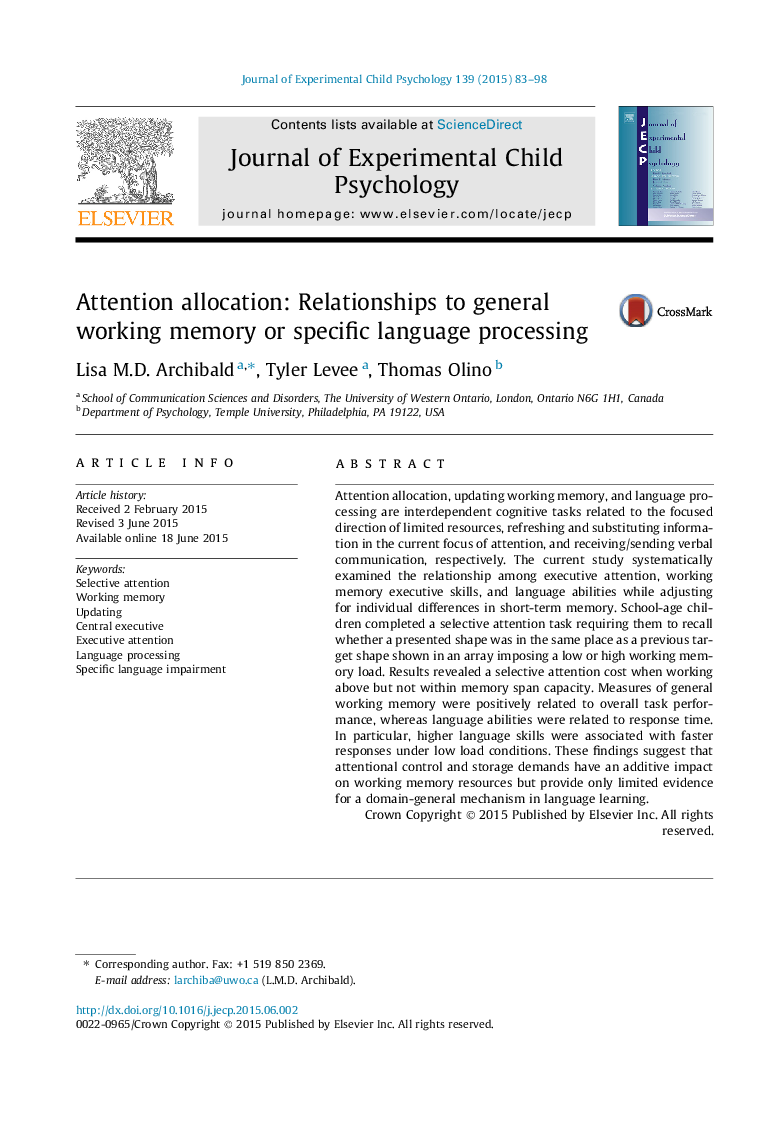| Article ID | Journal | Published Year | Pages | File Type |
|---|---|---|---|---|
| 917950 | Journal of Experimental Child Psychology | 2015 | 16 Pages |
•Selective attention cost under high but not low working memory load.•High working memory load more detrimental for individuals with low storage capacity.•Selective attention and storage demands have additive effects on working memory.•Language abilities associated with speed of response in domain-general task.
Attention allocation, updating working memory, and language processing are interdependent cognitive tasks related to the focused direction of limited resources, refreshing and substituting information in the current focus of attention, and receiving/sending verbal communication, respectively. The current study systematically examined the relationship among executive attention, working memory executive skills, and language abilities while adjusting for individual differences in short-term memory. School-age children completed a selective attention task requiring them to recall whether a presented shape was in the same place as a previous target shape shown in an array imposing a low or high working memory load. Results revealed a selective attention cost when working above but not within memory span capacity. Measures of general working memory were positively related to overall task performance, whereas language abilities were related to response time. In particular, higher language skills were associated with faster responses under low load conditions. These findings suggest that attentional control and storage demands have an additive impact on working memory resources but provide only limited evidence for a domain-general mechanism in language learning.
